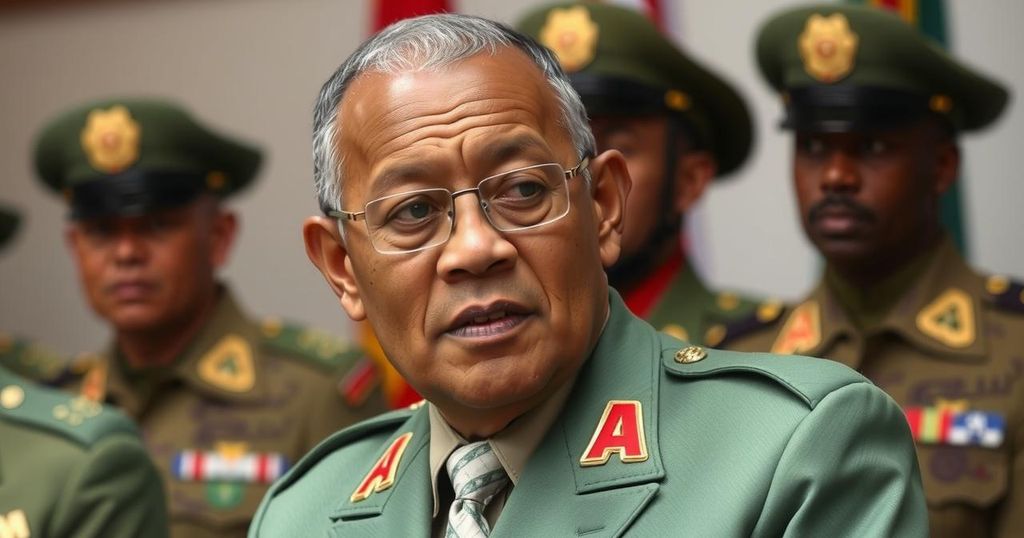Chad Holds General Election Amid Opposition Boycott and Low Turnout

Chad held a general election on Sunday amid calls for a boycott from opposition parties, resulting in low turnout estimates of around 38 percent. Voter apathy, skepticism regarding the electoral integrity, and ongoing challenges in the country characterize the political landscape. While the government frames the election as a transition to democracy, many citizens express profound disillusionment with the electoral process.
Chad held a general election on Sunday, which the government claims is a pivotal step toward transitioning away from military rule that has persisted for three years. However, voter turnout is anticipated to be low, largely due to a boycott called by opposition parties, reflecting widespread apathy. Initial reports from the elections management agency, ANGE, indicated a turnout of only 38 percent, as citizens grappled with skepticism regarding the electoral process and its legitimacy.
Despite this, President Mahamat Idriss Deby Itno urged citizens to participate in what he labeled a significant day for the nation, posting photographs of himself casting his vote on social media. Opposition leaders, such as Succes Masra from the Transformers party, asserted that the election results had been predetermined, and many voters reportedly chose to heed this call to boycott. This abstention effectively creates an advantageous landscape for candidates who align with the ruling administration.
Several constituents expressed their disappointment and disenchantment with the electoral system, voicing concerns regarding unemployment and the lack of real change. While soldiers and police cast their ballots early for logistical reasons, the turnout among various demographics remains contentious. Additionally, opposition parties indicated fraudulent activities, including numerous missing ballots ahead of the elections.
This election unfolds amid ongoing challenges such as terrorist threats from Boko Haram, geopolitical tensions with former colonial power France, and regional conflicts affecting neighboring Sudan. The government has framed these elections as a crucial element of its strategy to establish democracy following the death of former President Idriss Deby in 2021. The situation continues to evolve as election monitors oversee the proceedings, and the potential for electoral malpractice remains a pressing concern.
Chad has experienced military rule since President Mahamat Idriss Deby Itno, the son of long-time leader Idriss Deby, assumed power following his father’s death in 2021. The government has committed to transitioning from military governance to a democratic system, signaling this general election as a significant step. However, opposition parties argue that the electoral process is rigged, leading to calls for a boycott among voters. Historically, Chad’s elections have been marred by allegations of fraud and voter apathy, which appear to continue influencing its political landscape.
In conclusion, the recent general election in Chad highlights significant public disillusionment with the electoral process, exacerbated by calls for a boycott from opposition parties. With turnout figures indicating widespread apathy and concerns over the election’s legitimacy, the government faces challenges in its claims of moving toward a democratic process. As the nation navigates this complex political environment, the outcome of the election may further entrench the existing power dynamics or prompt shifts in public sentiment.
Original Source: www.myleaderpaper.com








